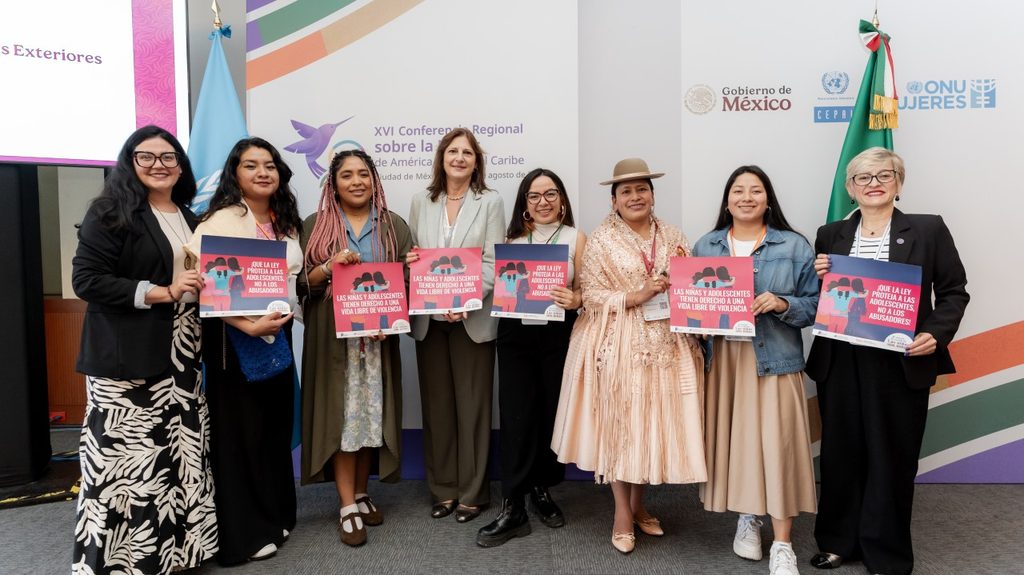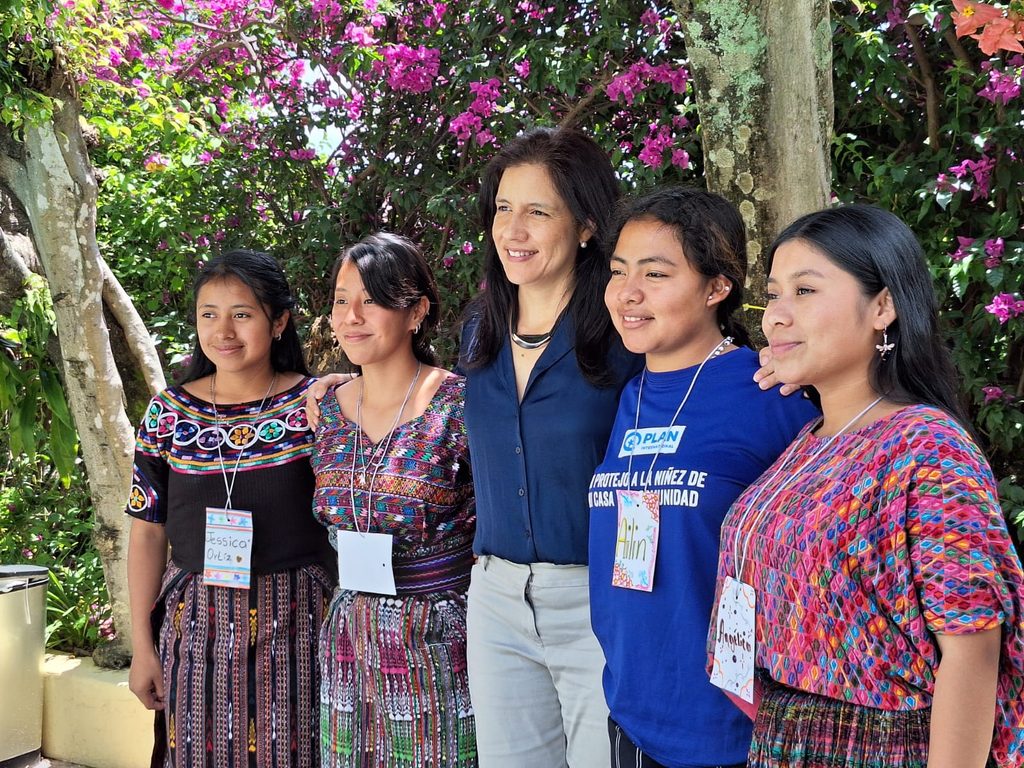Forced unions: An urgent challenge for girls in Latin America and the Caribbean
27 August 2025The humanitarian and development organization Plan International stresses that the region must decisively address child marriage and early and forced unions, the latter being the most invisible issue.
During the XVI Regional Conference on Women in Latin America and the Caribbean, held recently in Mexico City, girls and young women from different countries made a powerful call to States to end child marriage and early and forced unions. At the side event “Voices Driving Change: Strategies to Address Child, Early and Forced Marriage and Unions in Latin America and the Caribbean,” organized by the regional alliance ALIADAS, more than 150 people gathered to discuss solutions to this harmful practice.

Regional research shows that in Latin America and the Caribbean, one in four girls marries or enters a union before the age of 18. The region is the only one in the world where the prevalence of child marriage and early unions has not declined in the last 25 years. It also has the second-highest adolescent pregnancy rate globally. These unions—often driven by poverty, gender inequality, and violence—interrupt girls’ education and put them at greater risk of unintended pregnancies and multiple forms of violence.
At the legal level, several countries in the region have made progress in prohibiting child marriage (though not early unions). Bolivia recently passed, in the Human Rights Commission of the Chamber of Deputies, a bill banning marriage under the age of 18. Guatemala raised the minimum age to 18; Brazil and Peru have strengthened their legal frameworks in recent years; and in Colombia, the definitive ban on child marriage was consolidated in 2025, in a process in which Fundación Plan played an active role.
In Latin America and the Caribbean, Plan International has conducted 11 studies on child marriage and early and forced unions in the past eight years—one at the regional level and the rest in countries such as Bolivia, Ecuador, El Salvador, Guatemala, Honduras, Paraguay, Peru, and the Dominican Republic.
According to Plan International’s experience, the true challenge lies not only in formal marriage but especially in early and forced unions—the most common and least visible forms of this practice, which often escape official records and are in many cases normalized or justified as cultural traditions. Like marriages, early unions limit girls’ futures; they expose them to early pregnancies, school dropout, cycles of violence that are difficult to escape, and the perpetuation of poverty.
“Laws prohibiting child marriage are not enough. As long as early and forced unions continue to be normalized in our communities, we will keep seeing girls losing their childhood, their education, and their rights,” said Carmen Elena Alemán, Regional Director of Plan International for Latin America and the Caribbean.
“As long as early and forced unions continue to be normalized in our communities, we will keep seeing girls losing their childhood, their education, and their rights.”
Carmen Elena Alemán, Regional Director Plan International for Latin America and the Caribbean
Girls’ voices on early and forced unions
To highlight the leadership of girls and adolescents in defending their rights, Plan International held the regional gathering “Voices that Inspire,” in El Salvador from August 22 to 24. During these days, 36 adolescents and young people from Guatemala, Ecuador, and El Salvador reflected on issues such as early and forced unions, adolescent pregnancy, and humanitarian action, while presenting proposals to transform their communities. The following statements were collected during this space:

Ami, 21, from Ecuador, emphasized how forced unions directly affect girls’ lives:
“Forced unions do not allow girls to exercise their right to education. They are not guaranteed a dignified life free from violence, and along the way they face adolescent pregnancies.”
“Forced unions do not allow girls to exercise their right to education. They are not guaranteed a dignified life free from violence, and along the way they face adolescent pregnancies.”
Ami, 21, from Ecuador
Jessica, 20, from Guatemala, warned about the multiple forms of violence adolescents face in these situations:
“Forced unions lead to psychological, physical, and economic violence; girls are left vulnerable to an older person.”
Karla, 15, from El Salvador, explained what an early union would mean for her:
“An early union would not allow me to continue my studies or achieve my goals and dreams, and that would affect me emotionally.”
Plan International highlights that the participation of adolescents in public spaces is essential to advance public policies that respond to the realities of those most affected by these practices. The organization reaffirms its commitment to working alongside girls, young people, and regional partners so that all adolescents can grow up free from violence, free from child marriage and forced unions, and with equal opportunities to build their own life projects.
“We need joint action from governments, civil society, and international organizations to bring visibility to this issue with clear data, to measure its true scope, and to tackle it now. Only then can we move toward a region where every girl and adolescent can live free not only from child marriage but also from early and forced unions,” stressed Carmen Elena Alemán.
“We need joint action from governments, civil society, and international organizations to bring visibility to this issue with clear data, to measure its true scope, and to tackle it now.”
Carmen Elena Alemán, Regional Director Plan International for Latin America and the Caribbean


